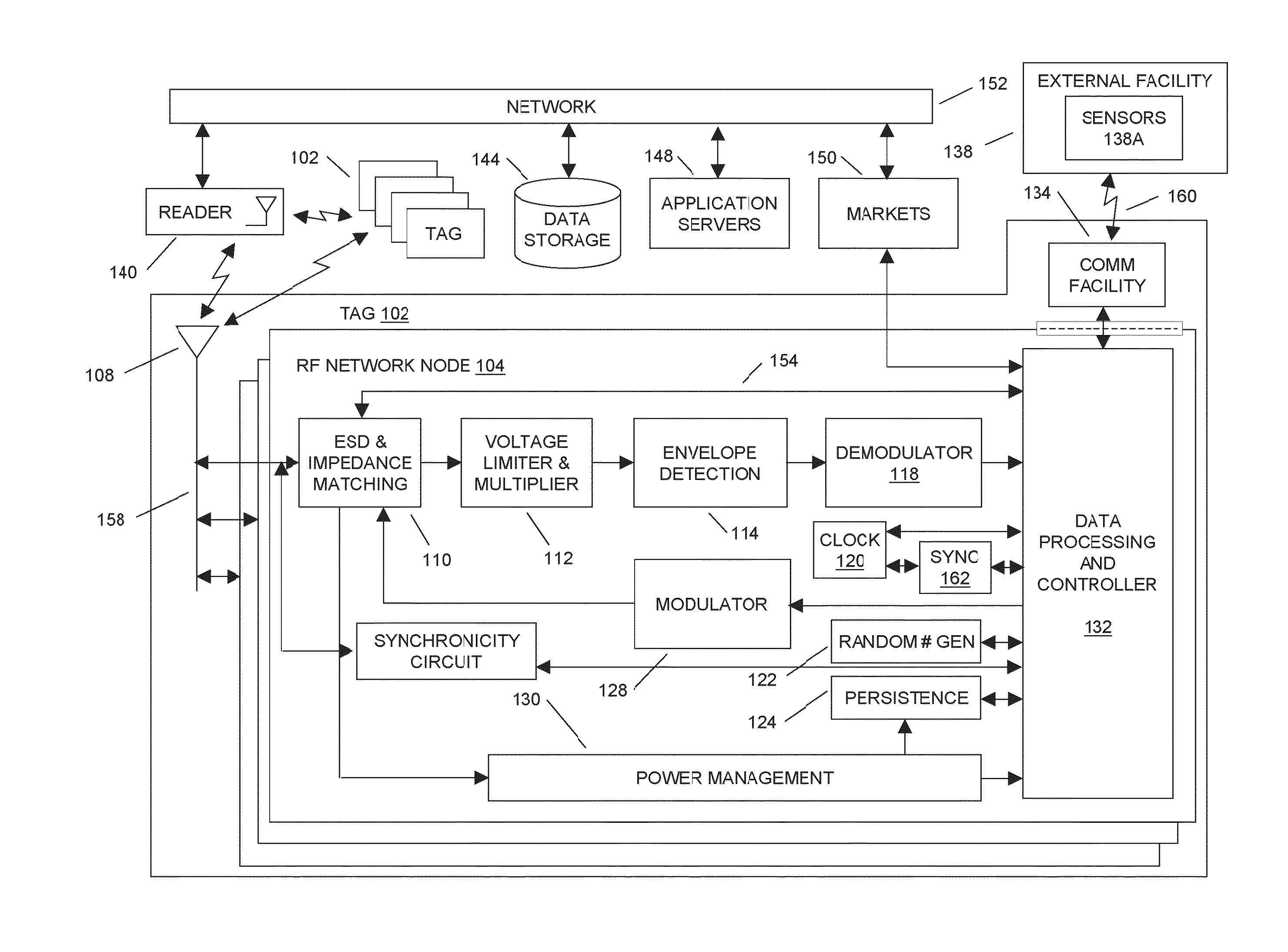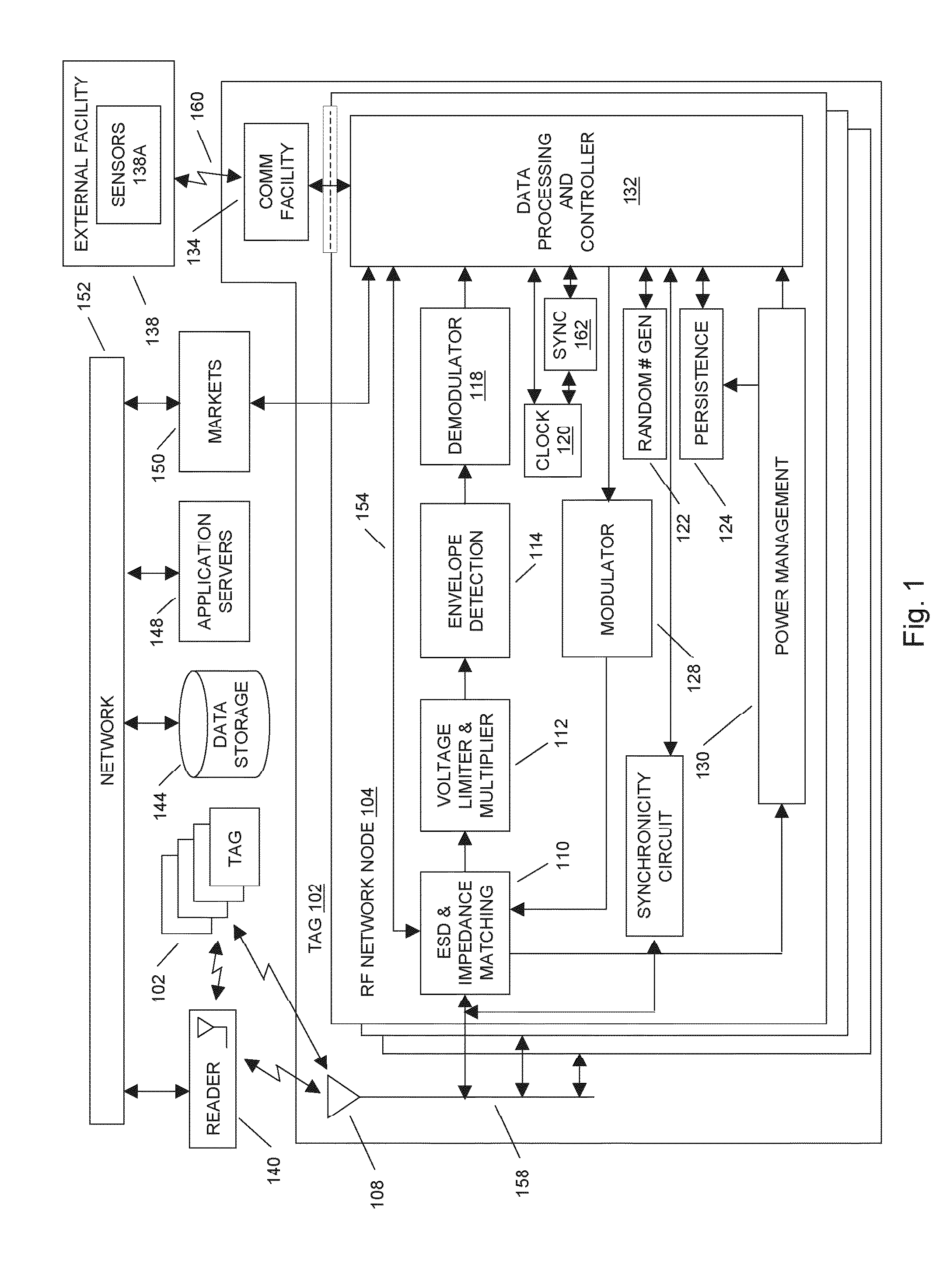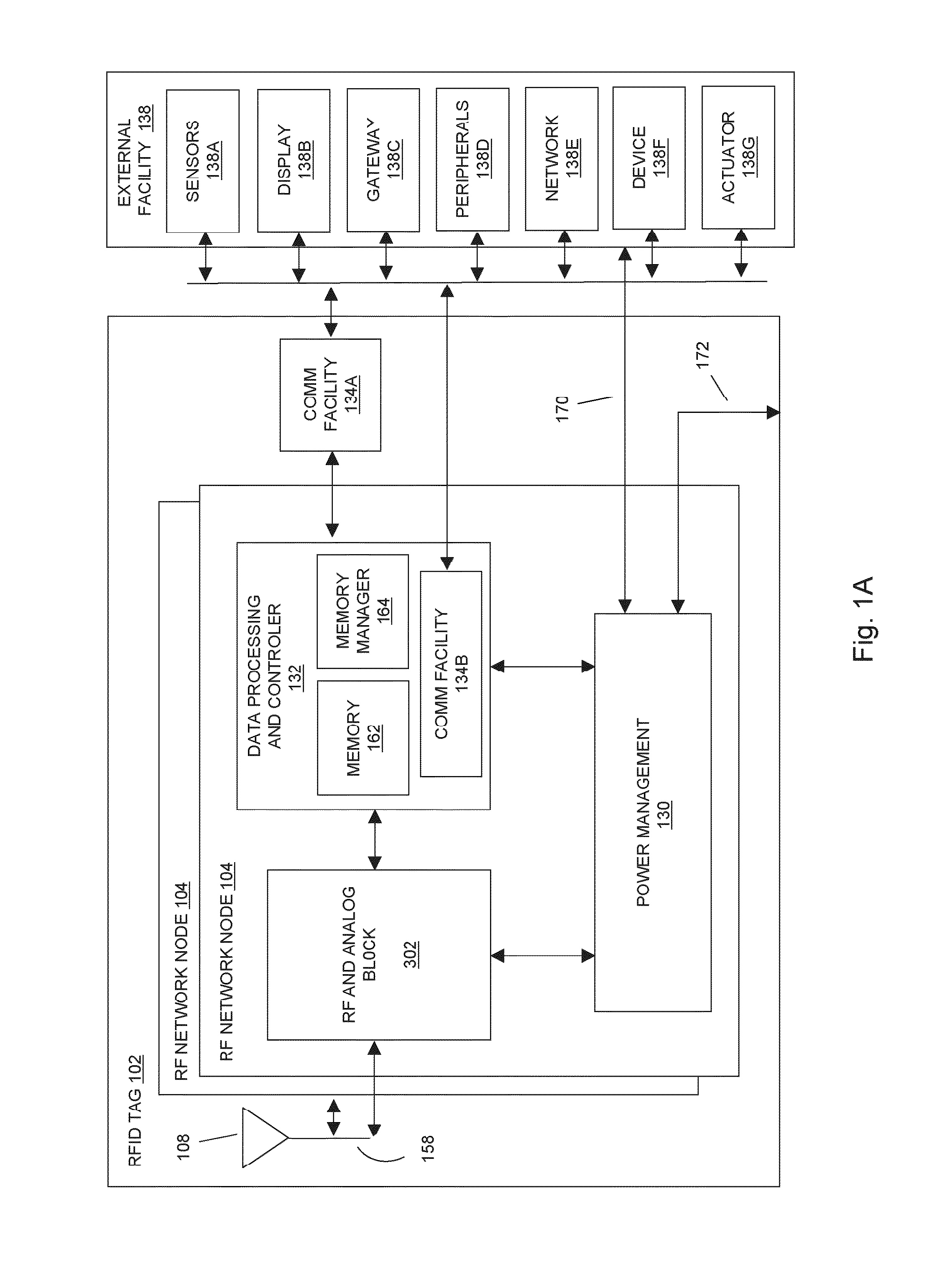Information RFID tagging facilities
a technology of information rfid and tagging facilities, which is applied in the field of radio frequency identification (rfid) tags, can solve the problems of inability to interact with rfid tags, the information associated with assets, and the information left on rfid tags, and achieves the effect of increasing ionizing radiation
- Summary
- Abstract
- Description
- Claims
- Application Information
AI Technical Summary
Benefits of technology
Problems solved by technology
Method used
Image
Examples
Embodiment Construction
[0064]In aspects of the systems and methods described herein, although the term radio frequency identification (RFID) tag is used throughout the disclosure, the usage of this term is not meant to be limiting, such as to traditional RFID technologies (e.g., RFID technologies utilizing RFID protocols for interfacing with RFID tags, such as containing an identifier code for inventory tracking, and the like). The usage of the term RFID tag in the present disclosure pertains more generally to electronic devices communicating at least in part through wireless RF technology, including any near-field and / or far-field technologies and communication protocols known to the art.
[0065]In aspects of the systems and methods described herein, a radio frequency identification (RFID) tag may use multiple RF network nodes (e.g. radio microchips) to communicate information to a RFID reader, a network, other RFID network nodes, or the like. The communication of the information may be provided to the RFI...
PUM
 Login to View More
Login to View More Abstract
Description
Claims
Application Information
 Login to View More
Login to View More - R&D
- Intellectual Property
- Life Sciences
- Materials
- Tech Scout
- Unparalleled Data Quality
- Higher Quality Content
- 60% Fewer Hallucinations
Browse by: Latest US Patents, China's latest patents, Technical Efficacy Thesaurus, Application Domain, Technology Topic, Popular Technical Reports.
© 2025 PatSnap. All rights reserved.Legal|Privacy policy|Modern Slavery Act Transparency Statement|Sitemap|About US| Contact US: help@patsnap.com



